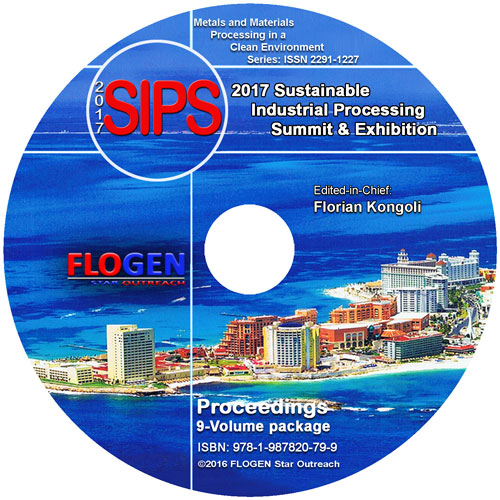2017-Sustainable Industrial Processing Summit
SIPS 2017 Volume 2. Dodds Intl. Symp. / Energy Production
| Editors: | Kongoli F, Buhl A, Turna T, Mauntz M, Williams W, Rubinstein J, Fuhr PL, Morales-Rodriguez M |
| Publisher: | Flogen Star OUTREACH |
| Publication Year: | 2017 |
| Pages: | 306 pages |
| ISBN: | 978-1-987820-63-8 |
| ISSN: | 2291-1227 (Metals and Materials Processing in a Clean Environment Series) |

CD shopping page
Interfaces: Small Features for Big Achievements in Sustainable Materials
Dominique Chatain1;1UNIVERSITé AIX-MARSEILLE, Marseille, France;
Type of Paper: General Plenary
Id Paper: 294
Topic: 46
Abstract:
Sustainability means doing more with less. In materials science, interfaces can dominate performance and thus can be used to manipulate nano- to macro-scale material properties, at decreasing energy cost and with increased precision. Interfaces can also create effective composite materials to replace homogeneous materials that use scarce elements. Interface science and engineering is a very active field not only for understanding interface characteristics and properties but also in terms of sustainability: using this knowledge to design interfaces at the nano-to-macro scale will be critical for sustainability in the 21st century for using global resources wisely and minimizing their impacts.
This talk will focus on the fundamental science of solid-solid interfaces between dissimilar inorganic materials and on grain boundaries in single phase materials. The potential of the underlying science to improve materials sustainability will be illustrated through several examples, from the stabilization of �unstable� materials which could replace rare earth and critical materials, to the creation of new properties in a solid by inserting the appropriate grain boundaries.
The state of the art will be presented including what science is still needed to achieve improvement in properties beyond current performance.